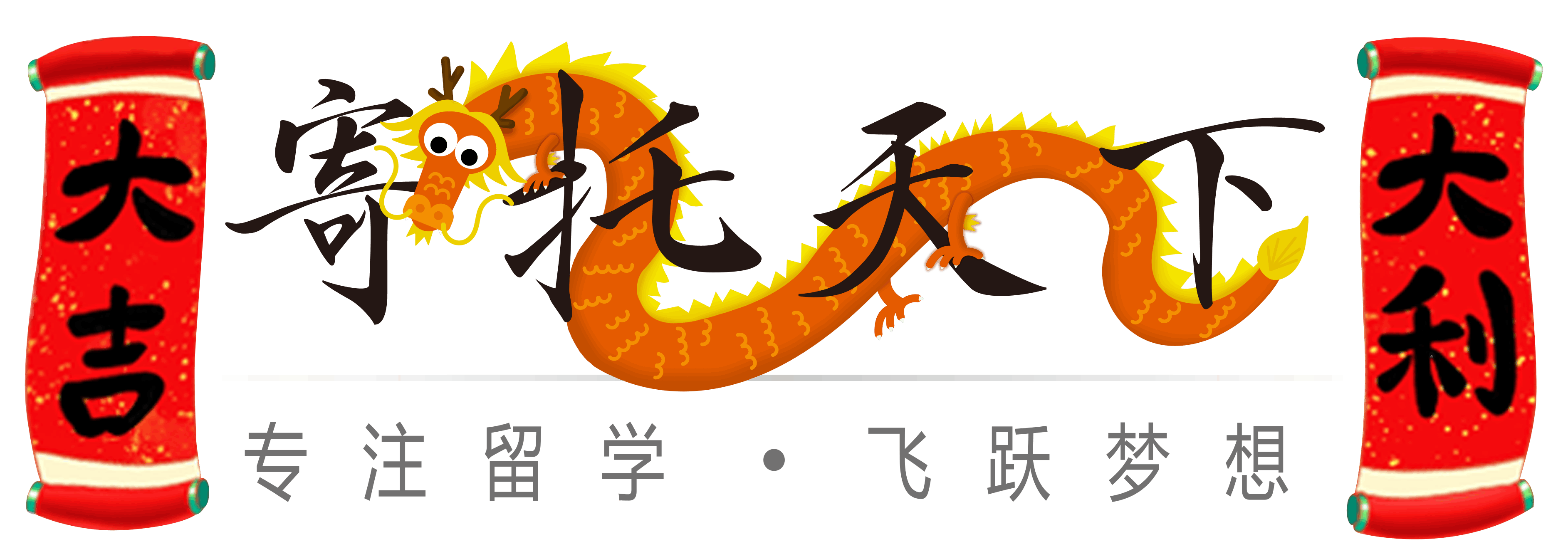- 最后登录
- 2013-8-20
- 在线时间
- 846 小时
- 寄托币
- 2130
- 声望
- 216
- 注册时间
- 2009-11-4
- 阅读权限
- 35
- 帖子
- 16
- 精华
- 0
- 积分
- 2025
- UID
- 2721764
 
- 声望
- 216
- 寄托币
- 2130
- 注册时间
- 2009-11-4
- 精华
- 0
- 帖子
- 16
|
0910AW SPECTACULAR 之【SU & SY SO】第六期——从句
从句是相对于主句而言的,即它是从属于某一个主句,而不能单独作一个句子。在英语中,主要有三大从句,即名词性从句(包括主语从句,宾语从句,表语从句,同位语从句)、形容词性从句(即定语从句)、副词性从句(即状语从句,包括时间、条件、结果、目的、原因、让步、地点、方式等)。
名词性从句
主语从句
1. 主语从句可直接位于主语的位置,如果从句较长,谓语又较短,可用it作形式主语,而将从句放在句末。
2. what引导的主语从句表示“...的东西时”,一般不用it作形式主语。
3. what, who, when, why, whether等词含有各自的疑问意义,但它们引导的主语从句,都用陈述语序。
How the plan is to be carried out should be discussed again.
I did know why I felt like crying.
宾语从句
1. 宾语从句可位于及物动词、介词和某些形容词后。连词that常可省略。介词后一般接疑问词引导的宾语从句。in that(因为),except that(除了),but that(只是)已构成固定搭配,其他介词后一般不接that引导的宾语从句。
2. 宾语从句后如有宾补,要用形式宾语it来代替,而把宾语从句移至宾补之后。
3. 在think, believe, suppose, expect等动词后的宾语从句中,如果谓语是否定的,一般将否定词移至主句谓语上,宾语从句则变成肯定形式。
表语从句
表语从句出现在结构为“主语+系动词+表语从句”的句子中。表语从句除可用that, what, when, why, whether, how等引导外,还可由because, as if(though)等引导。that常可省略。如主句主语为reason,只能用that引导表语从句,不可用because.
同位语从句
同位语从句用于对前面出现的名词作进一步说明,一般用连词that引导,由于先行名词的意义不同,也可用whether, who, when, where, what, why, how等引导。常见的先行名词有fact,idea,belief,news,hope,conclusion,evidence,suggestion,order,problem,report,decision.有时由于谓语较短,将同位语从句位于谓语之后。
用it作形式主语的that-从句有以下四种不同的搭配关系:
a. It + be +形容词+ that-从句 我喜欢理解它为一般描述
b. It + be + -ed 分词+ that-从句 新闻体,报告体,统计体~
c. It + be +名词+ that-从句
d. It +不及物动词+ that-分句 感觉有些时刻显得相对上面三个活泼一点,毕竟有个可变的动词在。
形容词性从句(即定语从句)
定语从句所修饰的先行词可以是名词或代词,也可以是一个句子。定语从句通常位于先行词之后,由关系代词或关系副词引导。
限制性定语从句
限制性定语从句修饰先行词,对先行词起修饰作用,紧接先行词之后,无逗号,若省去,原句意思不完整。引导定语从句的关系代词有who, whom, whose, which, that等。who, whom, whose用于指人,whose有时也可指物,相当于of which;which用于指物;that既可指人也可指物,但只用于限制性定语从句中。也就是说,that前面怎么样都不能有逗号的。关系代词除了引导定语从句,替代先行词外,还在从句中担任主语、宾语、定语等。
1)当先行词是all, anything, everything, something, nothing等不定代词或先行词前有first, last, any, few, much, some, no, only以及形容词最高级修饰时,只能用关系代词that引导从句。
2)关系代词的省略
在从句中作宾语的关系代词常可省略。关系代词紧跟介词,作介词宾语时不可用that,只可用which或whom引导从句,并且不可省略,但当介词位于宾语从句句末时,作为介词宾语的关系代词仍可用that,也可省略。
This is one of those things with which we have to put up.
This is one of those things (which\that) we have to put up with.
3)引导定语从句的关系副词有when,where,why等。关系副词在从句中作状语,意义上相当于一个“介词+which”的结构。
非限制性定语从句
非限制性定语从句既可修饰先行词,也可修饰整个主句,起补充说明作用,与主句之间有逗号隔开,若省去,原句意思不受影响。不可用that引导非限制性定语从句。关系词不可省略。
*“介词+which\whom\whose”引导的定语从句
“介词+which\whom\whose”可引导限制性定语从句,也可引导非限制性定语从句,该结构中介词的选择取决于从句谓语动词的固定搭配,或先行词的习惯搭配。
与关系副词引导的定语从句比较一下,这里的介词是固定搭配中的介词,是不能够跟which who等代词合并的,必须单独列出来。
This is the computer on which he spent all his savings
It is written by a person with whom we are all familiar.
as引导的定语从句
as引导的定语从句主要用于“such...as”及“the same...as”的结构中,代替先行词是人或物的名词。as引导非限制性定语从句时,代替整个主句,从句可位于主句之前、之后或中间。
These are not such problems as can be easily solved.(as代替先行词problems)
As is mentioned above,no single company or group can control what happens on the Internet.(as代替主语)
副词性从句(即状语从句)
时间状语从句
引导时间状语从句的从属连词和词组有:
1)when, whenever, while, as, after, before, since, till, until, once等。
2)as soon as, hardly(scarcely)...when, no sooner...than, each(every) time, the moment, immediately(that)等。
地点状语从句
引导地点状语从句的连词是where, wherever.
Wherever I am I will be thinking of you. 不管我在哪里我都会想到你。
原因状语从句
引导原因状语从句的从属连词有:because, as, since, now(that),seeing that, considering that, in that等。
Considering that he is a freshman, we must say he is doing well.
比较:because, since, as和for
1) because语势最强,用来说明人所不知的原因,回答why提出的问题。当原因是显而易见的或已为人们所知,就用as或 since。
I didn't go, because I was afraid.
Since /As the weather is so bad, we have to delay our journey.
2) 由because引导的从句如果放在句末,且前面有逗号,则可以用for来代替。但如果不是说明直接原因,而是多种情况加以推断,就只能用for。
He is absent today, because / for he is ill.
He must be ill, for he is absent today.
结果状语从句
引导结果状语从句的连词有:so...that, such...that, so that, that, so等。
比较: so和 such
其规律由so与such的不同词性决定。such 是形容词,修饰名词或名词词组,so 是副词,只能修饰形容词或副词。 so 还可与表示数量的形容词many, few, much, little连用,形成固定搭配。
( so many 已成固定搭配,a lot of 虽相当于 many,但 a lot of 为名词性的,只能用such搭配。)
so…that与 such…that之间的转换既为 so与such之间的转换。
目的状语从句
引导目的状语从句的连词有:so that, in order that, for fear that, lest等,从句常使用may, might, can, could, would等情态动词。
Better take more clothes in case the weather is cold.
条件状语从句
引导条件状语从句的连词和词组有if,unless,as(so) long as,on condition that,in case,provided(providing) that,supposing等。
if 引导的条件句有真实条件句和非真实条件句两种。非真实条件句已在虚拟语气中阐述。
unless = if not.
Let's go out for a walk unless you are too tired.
If you are not too tied, let's go out for a walk.
让步状语从句
引导让步状语从句的连词和词组有though, although, whether, even though, even if, no matter what(when, how...),whatever(whenever, wherever, however....)等。though, even if等引导状语从句可转换成含有as的部分倒装结构,具有强调意义。其结构为“形容词(副词、动词、名词)+as+主语+谓语”。
Young as he is,he is quite experienced in this work.(=though he is young)
Child as he is,he can speak English fluently.(=though he is a child)
1)though, although
注意:
当有though, although时,后面的从句不能有but,但是 though 和yet可连用
Though the sore be healed, yet a scar may remain.
伤口虽愈合,但伤疤留下了。(谚语)
2) as, though 引导的倒装句
as / though引导的让步从句必须表语或状语提前(形容词、副词、分词、实义动词提前)。
Child as /though he was, he knew what was the right thing to do.
= Though he was a small child, he knew what was the right thing to do.
注意: a. 句首名词不能带任何冠词。
b. 句首是实义动词,其他助动词放在主语后。如果实义动词有宾语和状语,随实义动词一起放在主语之前。
Try hard as he will, he never seems able to do the work satisfactorily.
= Though he tries hard, he never seems…
虽然他尽了努力,但他的工作总做的不尽人意。
3) even if, even though. 即使
4) whether…or- 不管……都
5) "no matter +疑问词" 或"疑问词+后缀ever"
No matter what happened, he would not mind.
Whatever happened, he would not mind.
注意:no matter 不能引导主语从句和宾语从句。
(错)No matter what you say is of no use now.这一句简直就是我常犯的错!
(对)Whatever you say is of no use now.
你现在说什么也没用了。(Whatever you say是主语从句)
(错)Prisoners have to eat no matter what they're given,
(对)Prisoners have to eat whatever they're given. 囚犯们只能给什么吃什么。(方式状语)
从句部分练习题(1)选摘:
7. --- Would you like a cigarette?--- No. It’s several years _____ I gave up smoking.
A. after B. since C. when D. before
自从戒烟之后,since。
13. We’ll start off as we planned _____.
A. no matter he will come or not B. no matter whether he will come or not
C. whether is he coming or not D. whether he comes or not
be+ing表将来呀将来~
14. To my delight, there was my purse in the back seat of the taxi, _____ the driver couldn’t possibly have seen it before.
A. that B. which C. where D. when
因为后面有个it,所以前面的先行词肯定不会是指代钱包。
从句部分练习题(2)选摘:
5. Because of the traffic jam _____ I was caught, I was late for the meeting.
A. by which B. in which C. that D. where
从句部分练习题(3)选摘:
3. The great use of a school education is not so much to teach you things _____ to teach you the art of learning.
A. than B. rather than C. nor D. as
not so much to xxx as to xxx,not more xxx than xxx.
5. I shall take you back to France _____ you are well enough to travel.
A. presently B. quickly C. directly D. at once
directly,直接地,立即
10. I had not been reading for half an hour _____ I heard steps outside.
A. when B. that C. while D. as
11. The parents were worried about their daughter because nobody was aware of _____ she had gone.
A. to which B. the place which C. the place D. where
刚开始选的时候看到在of后面就把where排除了,囧……where=the place to which
12. --- They don’t have much in their house yet.
---_____ they’re planning to live here only until Bob gets his degree, they don’t want to buy much furniture.
A. While B. Although C. Since D. As far as
答案是选B,但我选的是C,为什么不能是:因为他们打算等到Bob毕业后才搬过来,所以不打算买更多家具?
20. The treatment will continue until the patient reaches the point _____ he can walk correctly and safely.
A. when B. where C. which D. how
22. After five hours’ drive, they reached _____ they thought was the place they’d been dreaming of.
A. that B. where C. which D. what
reach后面缺少一个名词做宾语。which是代词,没有一个先行的名词,它找不到依托,where是介词+代词的综合,也不能有名词的功能。 |
|





 GO
GO











 发表于 2009-11-9 00:00:48
发表于 2009-11-9 00:00:48






